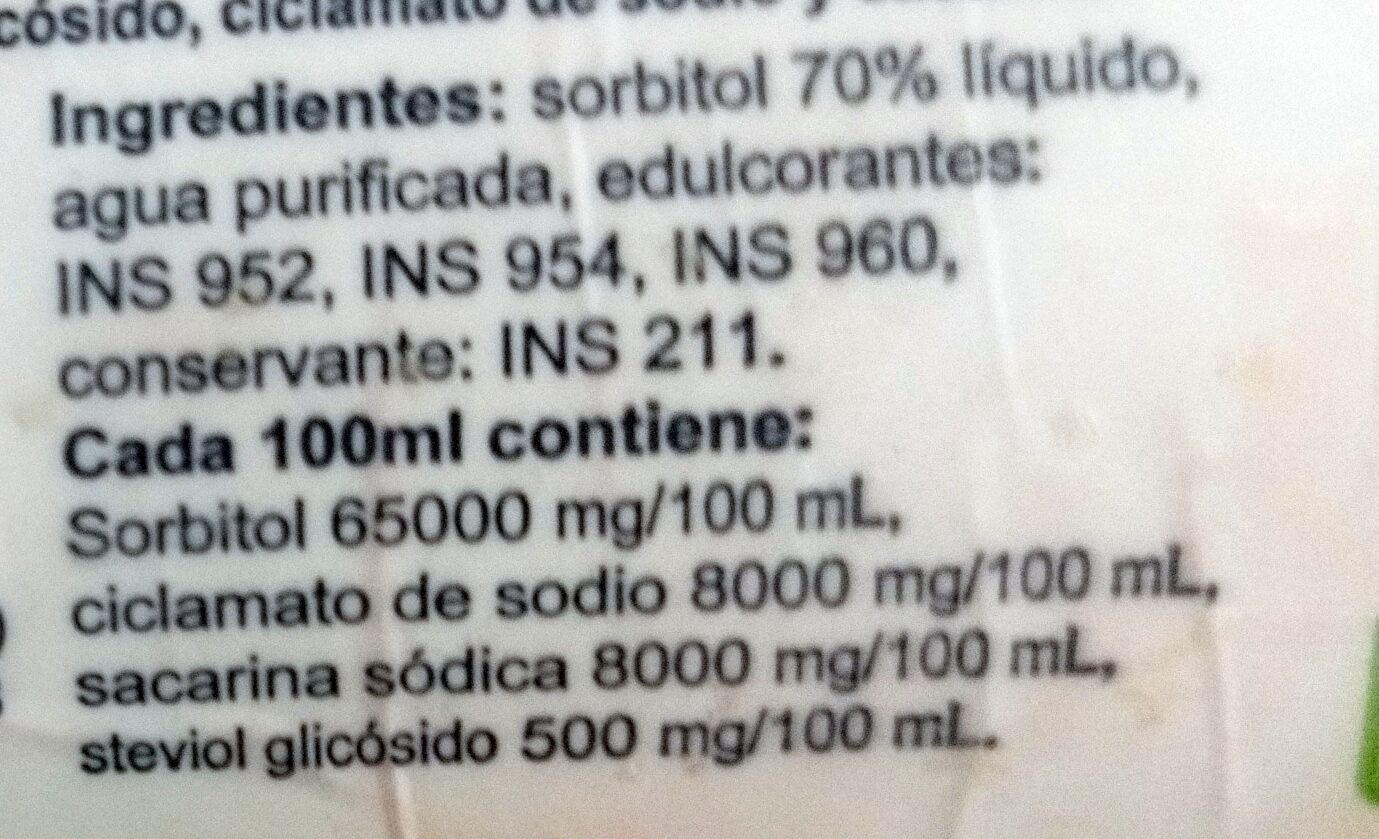Edulcorante Dulzero - 600 ml
This product page is not complete. You can help to complete it by editing it and adding more data from the photos we have, or by taking more photos using the app for Android or iPhone/iPad. Thank you!
×
Barcode: 7840085004349 (EAN / EAN-13)
Common name: edulcorante de mesa líquido.
Quantity: 600 ml
Brands: Dulzero
Categories: Sweeteners, Food additives, Sugar substitutes, Artificial sugar substitutes, Saccharin, Sodium cyclamate, Stevia sweetener, Tabletop sweeteners
Labels, certifications, awards: Low or no sugar, No gluten, No aspartame, No sugar, No calories
Origin of ingredients: Paraguay
Manufacturing or processing places: Luque, Paraguay
Traceability code: RE 800744306/1, RE 800017706/1, RSPA 045658, 080503180028
Link to the product page on the official site of the producer: https://www.facebook.com/dulzeropy/
Matching with your preferences
Health
Food processing
Additives
Ingredients analysis
Environment
Carbon footprint
Packaging
Transportation
Report a problem
Data sources
Product added on by kiliweb
Last edit of product page on by 5m4u9.
Product page also edited by smoothie-app, yuka.sY2b0xO6T85zoF3NwEKvlkVhafbypwnYFQLisEGg1NKpBMDaavBw2bOiM6s.








